Yemen: “Each time a bomb hit a target near the hospital, I could feel the ground shake and the air pressure change inside my body”
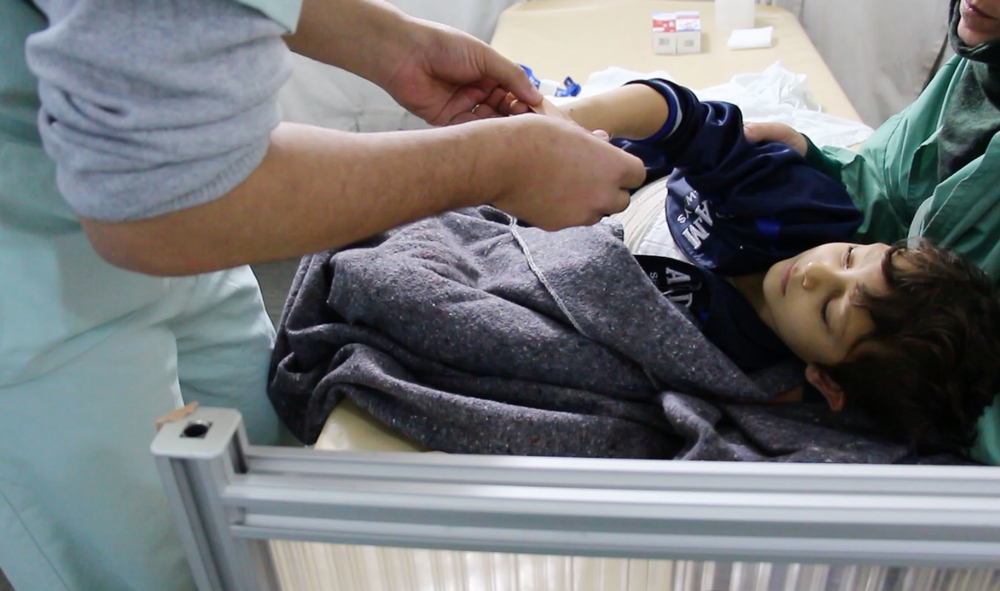
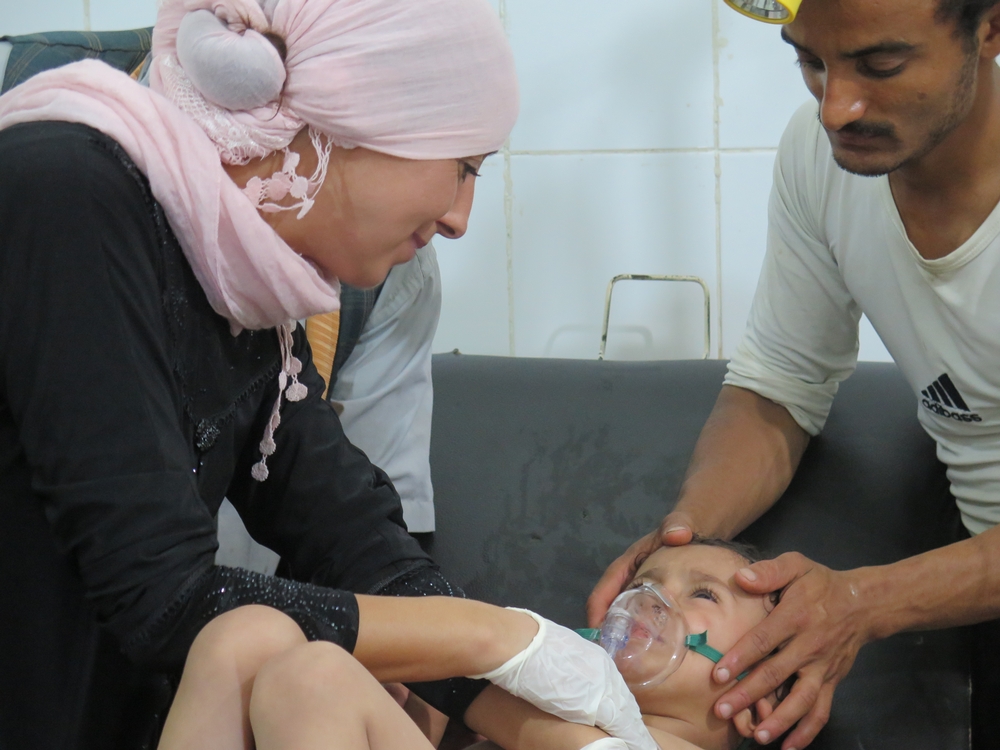
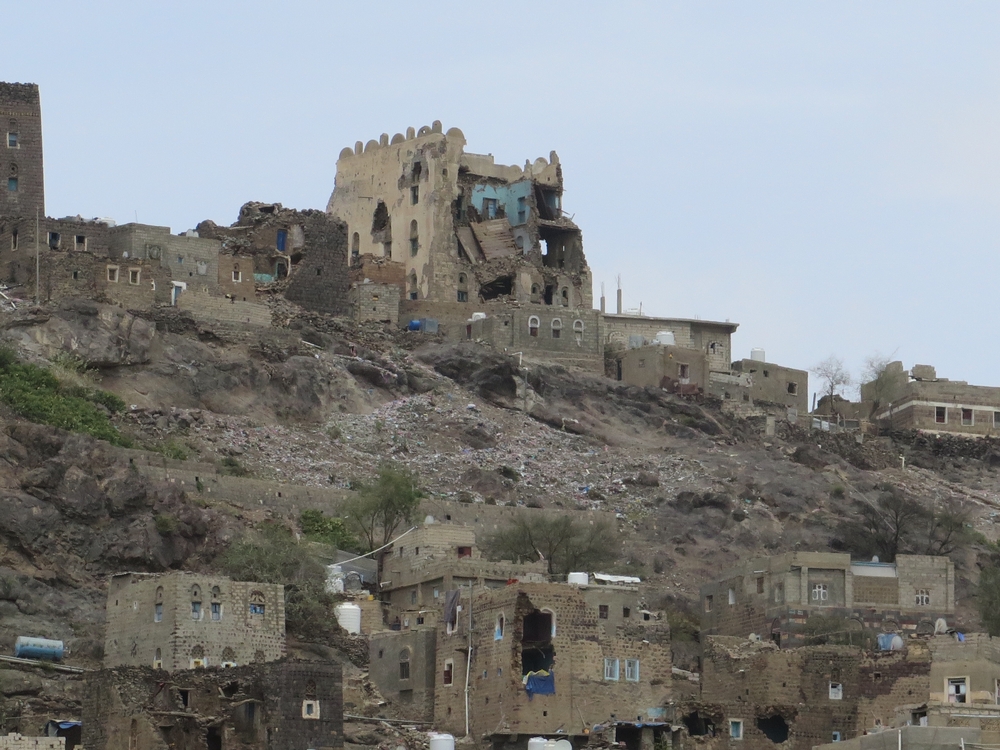
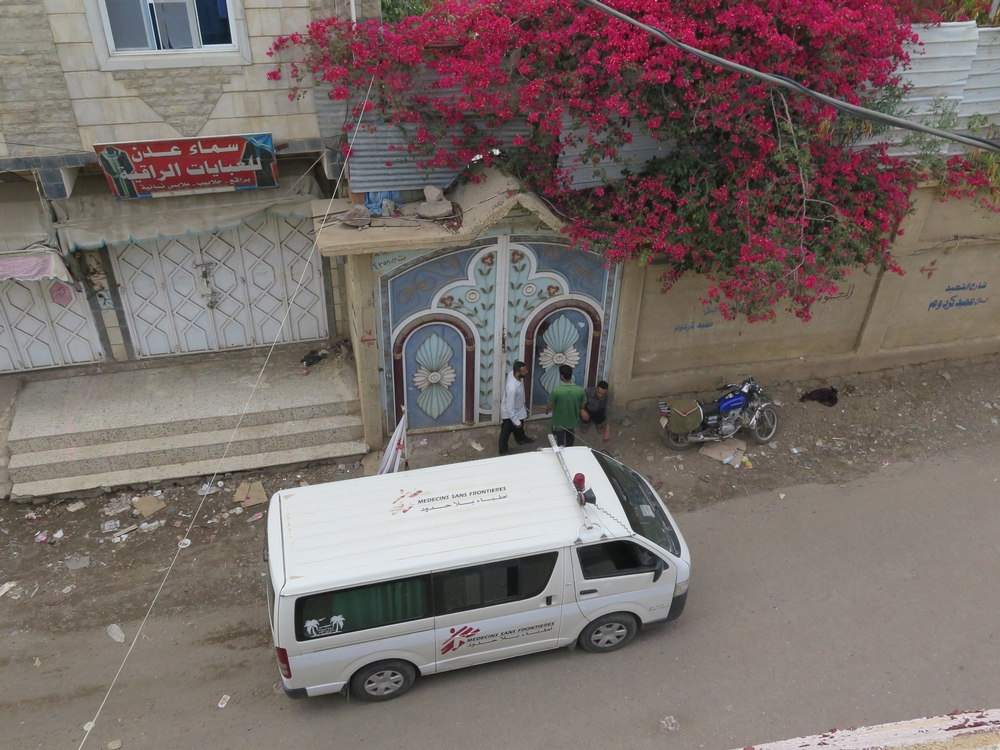
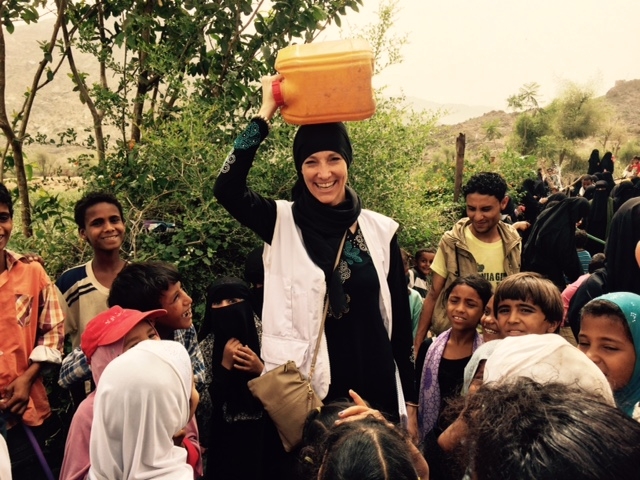
Aug 20, 2015
With the conflict between armed groups escalating in Yemen, MSF project coordinator Christine Buesser headed for the southwestern province of Al Dhale, where medical staff are struggling to keep hospitals running in the face of fighting, bombing raids and desperate shortages of medicine and fuel.
Stuck in Djibouti
Being stranded for 10 days in Djibouti wasn’t what I had in mind when I left the MSF office in Amsterdam on my way to Yemen. The airport in the Yemeni capital, Sana’a, had just been bombed, putting the landing strip out of action. But having worked in conflict zones with MSF in the past, I know that obstacles always exist between us and the people in need.
I was anxious to get there, and frustrated knowing that five of us were on standby in Djibouti, while our team in Sana’a didn’t have enough people to operate effectively. But finally I boarded a small aircraft and arrived in Sana’a International Airport on the afternoon of 13 May.
The arrivals hall was empty. Aside from the handful of officials processing our passports, there were no other people. Instead, empty halls, empty counters, and here and there a lonely cat or dog looking for shelter or food. The airport seemed to be open just for us.
The impact of the bombing could be seen in the blasted out windows and the half-destroyed buildings and hangars around the landing strip.
Beyond the airport, the empty streets strewn with garbage were set against the distinctive architecture of Sana’a’s buildings, surrounded by beautiful mountains. Long lines of cars and motorbikes stood in front of non-functioning petrol stations. I gazed at rows of flattened buildings, realising how powerful the blasts must have been to take them down. I wondered if people had managed to flee in time.
At the MSF house, I met the rest of the team. The office was no longer considered safe, due to airstrikes, so they were working around tables in the living room, computers, phones and cables everywhere. They looked tired after many sleepless nights and a heavy workload.
My first priority was to assess the security situation in Al Dhale province, in the southwest of the country. International staff had been evacuated from the hospitals we were supporting in Al Dhale province in March because of heavy fighting and shelling. Our Yemeni colleagues were holding the project together, but many were unable to get to work due to insecurity. They were in desperate need of support from those of us who had just arrived.
In the days that followed, we got everything ready to ship to Qataba, from medicine to a small generator to a printer and extra blankets and pillows. From Qataba, we would make our way to Al Dhale town, on the far side of the frontline.
Arrival in Qataba
I arrived in Qataba on the day that airstrikes hit Houthi army positions. Each time a bomb hit a target near the hospital where we lived and worked, I could feel the ground shake and the air pressure change inside my body. During the strikes, the women and children huddled together in the hospital corridor, some of them crying. Other patients left the hospital when the bombing started, either to check on family members, or because they were afraid the hospital would become the next target.
The days that followed were frantic and intense as clashes intensified between the warring parties and the frontline shifted. We got little sleep as we were receiving seriously injured patients day and night. Besides attending to the patients, the team was working hard to reinforce the hospital building with sandbags and bring in more medical supplies.
Fighting, shelling and bombing are disrupting daily life, but perhaps the most devastating effect of this conflict is the lack of fuel, basic provisions and essential services, including water, sanitation and healthcare. Almost all hospitals and pharmacies in the areas where we work have closed down.
As well as providing emergency medical care, we wanted to ensure that women and children had a safe place to go when they became sick. It wasn’t long before the hospital in Qataba was overrun with screaming babies, crying children and their worried mothers. For some women, the only place to vocalise their fears was in the doctor’s office, and we were there for them. Some were so psychologically traumatised that their symptoms were physical. They complained about body pain, headaches, nausea and fainting. They were so afraid they could no longer sleep. I often wanted to cry myself when looking into their eyes and hearing their stories.
Sometimes I couldn’t sleep either, because all night I could hear the explosions of Katyusha rockets, used by both warring parties. The deafening noise of the rockets was apparently designed to instill fear.
Crossing the frontline
With a new team of international staff settling into the hospital in Qataba, we prepared to visit the hospital we are supporting in Al Dhale town by crossing the active and often shifting frontline.
As we drove through the buffer zone, I was alert but nervous, waiting to hear the sound of bullets.
There was no one on the road but us. At times we zigzagged around makeshift roadblocks made of rocks. As we approached the town of Al Dhale, I saw a few Yemenis working in the fields, despite the risk of gunfire.
Arrival in Al Dhale
Arriving in town, I was greeted by a strange sight. In the distance I could hear gunfire, yet shopkeepers were selling fruit and vegetables in the market and people strolled through the streets. During the fighting here, many people had fled to the surrounding villages for safety. But since armed groups loyal to exiled President Abd Rabbuh Mansur Hadi had taken control of the town, it seemed that daily life had returned to normal.
But it became soon clear that the situation had not returned to normal at all. Al Dhale is cut off to the north and to the south by fighting, shifting frontlines and numerous checkpoints, which means that supplies, including medicines, cannot get through. Health facilities and water and sanitation systems have also collapsed.
People told me that access to healthcare continues to be a challenge, not only because health facilities are closed, damaged or have run out of medicines, but also because of insecurity and transport problems. One doctor told me she was worried about pregnant women in the surrounding villages who had complications during pregnancy or birth, but could not get to a hospital due to lack of fuel.
MSF is supporting emergency services in Al Dhale hospital. We are also donating drugs and medical supplies to other health facilities in the area, and supplying them with fuel and clean water. With the fuel blockage, it’s a daily struggle for our teams to keep the hospital generators running in order to keep the emergency services open. Without fuel, there is no electricity. Without electricity, there is no sterilisation, no oxygen concentrators, no lights in the operating theatre. Without proper sterilisation, a surgeon is forced to operate on patients with potentially contaminated surgical instruments.
Giving hope
During my time in Yemen, MSF was the only international organisation working in Al Dhale governorate with both Yemeni and international staff on the ground. One person told me: “I haven’t had anything to smile about in weeks, but seeing you here today puts a smile on my face, as it gives me and my fellow Yemenis hope.”
In the weeks that I was in Yemen, I tried to keep emergency services running, and played a part in helping to make healthcare available to those in need. But beyond providing physical assistance, the moments like those I shared with the women in the hospitals remind me that dignity, hope and solidarity mean so much too. I believe that this is why many of us help people in peril: because we believe in a world where people are not meant to suffer alone.
ENDS
MSF in Al Dhale province, southwestern Yemen:
MSF provides lifesaving medical services in the government-run Al Nasser hospital in Al Dhale town, providing round-the-clock support to the emergency room, as well as surgery and post-operative care. MSF is also supporting Al Azarik health centre with emergency care, antenatal and postnatal care, deliveries, routine vaccinations and nutrition treatment.
In Qataba, MSF is providing support to the government-run Al Salam hospital, including in the emergency room, observation room, laboratory and outpatient department, and providing antenatal and nutrition care. MSF is also supplying 25,000 people in Qataba with clean drinking water.
Elsewhere in the region, MSF is supporting a number of health centres in Al Jaffea and Al Habilain with medical supplies.
Since the beginning of 2015, MSF’s medical teams in Al Dhale have received 29, 399 patients in the emergency room, of whom more than 1,560 had conflict-related injuries.





Leave a Comment